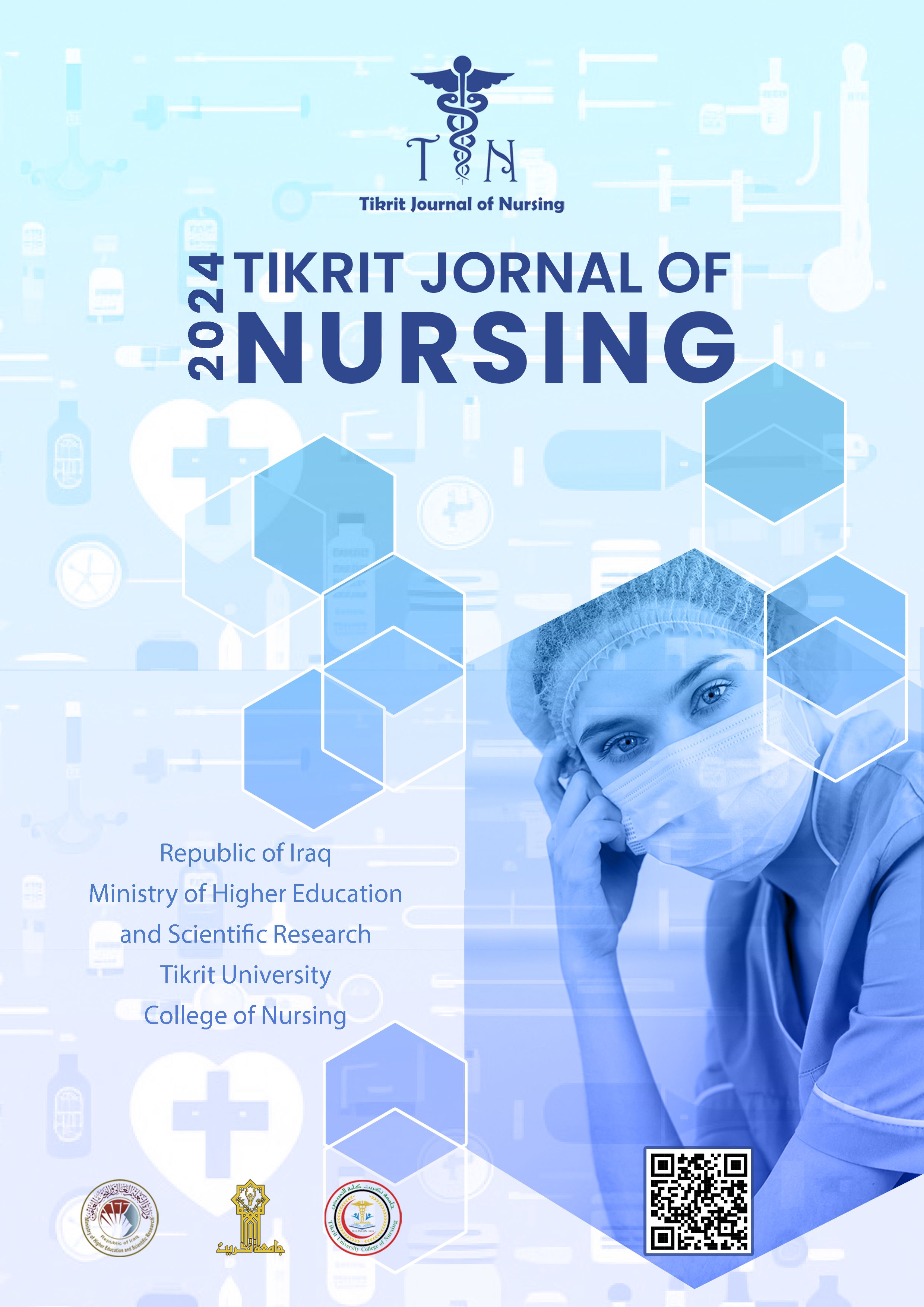Impact Of Medical Illnesses Upon the Levels of Coping with Terror-Related Stress Used By the Baghdad Nursing Students
Keywords:
Coping, Stress, Terror, Nursing Students, Medical IllnessAbstract
Objectives: To assess the levels and the coping ways with stress used by the students, to determine some important medical illnesses, to find out the relationship between levels of coping and some demographic characteristic, and to test the impact of some medical illnesses upon the coping.
Methodology: A cross-sectional study was carried out from 29th of December 2021 to 10th of April 2022, a 300 systematic sample of four stages. A constructed questionnaire was used, that consists three parts: the demographic characteristic; the scale to assess the coping levels (Brief Cope) [1], and the medical history.
Results: There are different coping levels with terror-related stress; 34.0% with weak level; 27.0% with intermediate level; and 39.0% with good level of coping. There is a significant relationship between the stage and the levels of coping, and there is significant difference in coping between stages of college.
Conclusions: There is a high level of coping with terror-related stress.
Recommendations: The students need for instruction programme to cope with terror- related stress; performing a special coping programmes to enhance the ability of dealing with stressful situation; and conducting more studies about cope with terror-related stress on the larger sample.
Downloads
References
C. Carver. ‘You want to measure coping but your protocol is too long: Consider the Brief COPE.’ International Journal of Behavioural Medicine. 4 (1997) 92-100.
Yikealo, D., & Tareke, W. (2018). Stress coping strategies among college students: A case in the college of education, Eritrea Institute of Technology. Open Science Journal, 3(3), 1–17.
Rheinberg, F., & Engeser, S. (2018). Intrinsic motivation and flow. In J. Heckhausen & H. Heckhausen (Eds.), Motivation and action (pp. 579–622). Cham: Springer International Publishing.
Tang, F., Byrne, M., & Qin, P. (2018). Psychological distress and risk for suicidal behavior among university stu dents in contemporary China. Journal of Affective Disorders, 228, 101–108. doi:10.1016/j. jad.2017.12.005.
Bamuhair, S. S., Al Farhan, A. I., Althubaiti, A., Agha, S., Rahman, S., & Ibrahim, N. O. (2015). Sources of stress and coping strategies among undergraduate medical students enrolled in a problem-based learning curriculum. Journal of Biomedical Education, 2015(1), 1–8. doi:10.1155/2015/575139
Kwaah, C. Y., & Essilfie, G. (2017). Stress and coping stra tegies among distance education students at the University of Cape Coast, Ghana. Turkish Online Journal of Distance Education-TOJDE, 18(3), 120–134.
doi:10.17718/tojde.328942.
Ahmadi, F., Khodayarifard, M., Zandi, S., Khorrami Markani, A., Ghobari-Bonab, B., Sabzevari, M., & Ahmadi, N. (2018). Religion, culture and illness: A sociological study on religious coping in Iran. Mental Health, Religion & Culture, 21(7), 721–736.
doi:10.1080/13674676.2018.1555699
G. Liverent, S. Hofmann, and B. Litz. Coping and Anxiety in College Students after the September 11th Terrorist Attacks. Anxiety, stress, coping. 17 (2004) 127-39.
Bamuhair, S. S., Al Farhan, A. I., Althubaiti, A., Agha, S., Rahman, S., & Ibrahim, N. O. (2015). Sources of stress and coping strategies among undergraduate medical students enrolled in a problem-based learning curriculum. Journal of Biomedical Education, 2015(1), 1–8. doi:10.1155/2015/575139
Downloads
Published
Issue
Section
License

This work is licensed under a Creative Commons Attribution-NonCommercial 4.0 International License.


